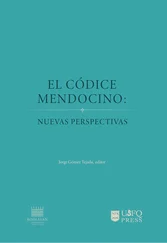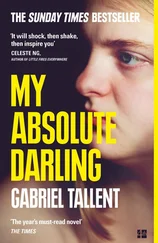“Not for long.”
“Not staying long, or you haven’t been back long?”
Over his shoulder, to the next person: “Paper or plastic.”
“You’re staying with your sister?”
None of your business , her expression said.
The woman behind squeezed past Sean to claim her bag, frowning at him for the inconvenience. No, he realized, she was frowning because she thought he was bothering Esme, who scratched at her wrist, then twisted a silver bracelet around— the bracelet, now part of her repertoire of nervous gestures. Because this was Esme, fidgeting, forlorn, scared, and guilty, probably guilty more than anything, ready to construe his mildest question as a reproach. She and Victor really were two of a kind. Nonetheless he tried: “Come to see Dylan.”
“Paper or plastic.”
“He wonders about you, you know.”
“Plastic.”
To Sean, who had edged out of the aisle and stood holding his bags, she said wretchedly, “Does he?”
Sean said, though it was far from the case, “No one holds anything against you. He needs you. He’s five years old.”
“I know how old he is,” she said.
“Or I could bring him by if that’s easier.”
Abruptly she stopped bagging groceries and pressed the heels of her hands to her eyelids. It was as if she’d temporarily broken with the world and was retreating to the only sanctuary possible in such a place. It was as if she despaired. He was sorry to have been a contributing factor, sorry to be among those she couldn’t make disappear; at the same time he felt formidably in the right, and as if he was about to prevail — to cut through her fears and evasiveness to the brilliant revelation, from Esme to herself, of mother love, a recognition she would never be able to retreat from, which would steady her and bring her to her senses and leave her grateful for the change that had begun right here and now in the checkout line at Safeway. Because lives had to change unglamorously and for the better. Because he had found her.
“Would you really do that?” Esme said.
“Yeah, I could do that.”
She tore a scrap from the edge of the bag she was filling, reached past the glaring cashier for a pen from the cup by the register, scribbled, and handed Sean the leaf of brown paper, which he had to hunt for, the next day, when it came time to call her, worrying that he’d misplaced it, finding it, finally, tucked far down into the pocket of the work pants he’d been wearing. But Esme wasn’t there when he called; instead he got her sister, who told him Esme would be home from work at four. Sarah was this one’s name, he remembered. “You know, she said you were really nice. Kind. So I want to thank you. She might not tell you this herself, but I know she can’t wait to see the little guy. Me, either.” Fine, they would come by around five.
Sean hadn’t yet broken the news of Esme’s return to Daisy, much less Victor, partly for his own sake, because he wanted to conserve the energy needed to cope with Daisy’s inevitable fretting and Victor’s righteous anger, partly for Dylan, because he wanted the boy to meet his mother again in a relatively quiet, relatively sane atmosphere, without a lot of fireworks going off, without anyone’s suggesting that maybe it wasn’t the best thing for the boy to spend time with a mother so irresponsible. Was there, in this secrecy, the flicker of another motive? Something like wanting to keep Esme to himself? Sean, driving, shook his head at the notion, and beside him Dylan asked, “Am I going to live with her now?”
“Honey, no, this is just for a little while, for you guys to see each other. You know what a visit is, right? And how it’s different from live with ? You live with us. You are going to visit your mom for a couple of hours. Meaning you go home after. With me. I come get you.”
“What color is her hair?”
“Don’t you remember? Her hair is black. Like—” He felt foolish when all he could come up with was “Well, not like any of ours.”
“Not like mine.”
“No, yours is brown.” Sean tried to think what else Dylan wouldn’t remember. “Your mom has a sister, a twin, meaning they look just alike. That’ll be a little strange for you, maybe, but you’ll get used to it, and this sister, see, is your aunt Sarah, and this’s your aunt’s house I’m taking you to. Because your mom is staying there. With her sister.”
Too much news, for sure, and for the rest of the brief drive Dylan sucked his thumb as he hadn’t done in years, but Sean didn’t reprimand him, just parked the truck so the two of them could study the one-story white clapboard house with the scruffy yard where a bicycle had lain on its side long enough that spears of iris had grown up through its spokes. If this had been an ordinary outing, Sean would have explained They built all these cottages on the west side for workers in the mill, and they don’t look like much, maybe, but they’re nice inside, and the men were allowed to take home seconds from the mill and they made some beautiful cabinets in their kitchens , because he likes telling the boy bits of the history of his hometown, but he kept that lore to himself, and when the boy seemed ready they climbed the front porch steps together and stood before the door. “You want to knock or should I?”
“You.”
Sean used his knuckles, three light raps, and then Esme was saying through the screen to Dylan, “Hey, you,” smiling her pained childish smile, and Dylan couldn’t help himself, he was hers, Sean saw, instantly, gloriously hers because she’d smiled and said two words. She held the door ajar and Dylan went past her into the house and he never did things like that — he was shy.
“Coming in?”
“I’ll leave you two alone. To get—” Reacquainted would strike her as a reproach, maybe. “So you can have some time to yourselves. Just tell me when to come for him and I’ll be back.” He paused. “His bedtime’s eight o’clock and it would be good if I got him home before that.” In case he needs some settling down. Sean doesn’t say that, or think about how he’s going to keep the boy from telling his grandmother where he’s been, but he will find a way, some small bribe that will soothe the boy’s need to tell all.
“Barely three hours,” she said.
“It’s not a great idea to feed him a lot of sugar or anything, cause then he gets kind of wired.”
“I wasn’t going to,” she said. “I know how he is.”
“It would only be natural if you wanted to give him a treat or something.”
“To worm my way back into his affections.”
“Not what I meant,” he said, and he suffered an emotion bruising but minor, too fleeting or odd, maybe, ever to have been named, nostalgia for a miserably wrongheaded sexual attraction. Not regret. He repeated, “Not what I meant.”
“So maybe you won’t believe this, I can see why you wouldn’t, but I wanted to see him so bad. Only I thought you-all would for sure say no. Blame me. Not, you know, trust me. And instead you’ve made it easy for me, and I never expected that, and I don’t know how to thank you, I don’t, but this means everything to me, it’s kind of saving my life. It’s really basically saving my life.” Running the sentences together, so unaccustomed was she to honesty, afraid, maybe, of the feeling of honesty, scary if you weren’t used to it, and Sean reached out to lay a finger on her lips, ancient honorable gesture for hush now , no further explanation was necessary, he got it that to see your child again was like having your life saved, he would have felt the same way in her shoes but also chastened and rebellious, confronting someone like him who was doing the real work, continually, reliably present for the boy, and he wanted to convey the fact that none of this mattered if she was here and could give the boy a little of what he needed, a sense of his mother: but now it was Sean who was inarticulate, moved by the girl softness of her mouth, Sean whose finger rested against her lips until she jerked her head back and he was blistered by shame, the burden of impossible apology and regret shifting from her shoulders to his. He waited for her to say something direct and blaming, scathing, memorable, and when she did not he was relieved. But he wasn’t fooled, either. She knew exactly what had happened and where it left them. This girl believed she now had the upper hand, but must use her leverage tactfully, however unlike her that was, if he was not to instantly deny what had taken place. What he understood was that he was in trouble here, but that she was going to collude with him because, basically, he could give her more of what she wanted. The child. His agreement was necessary for her to continue secretly seeing the child. And Sean did not know how to set any of this right, only that he needed to keep his voice down and not do any further harm — not scowl in dismay or do anything else she could construe as a sign of problems to come. He told her, “Seven thirty, then, okay? See you at seven thirty,” and she said in a voice in no way remarkable, “We’ll be here.”
Читать дальше












